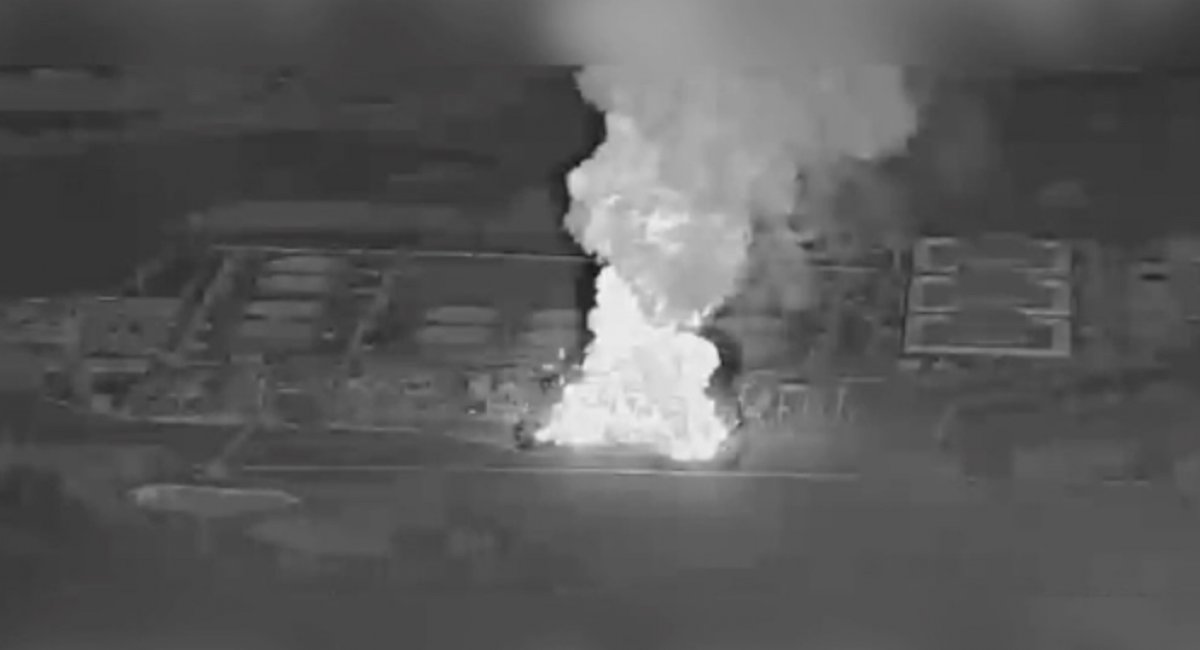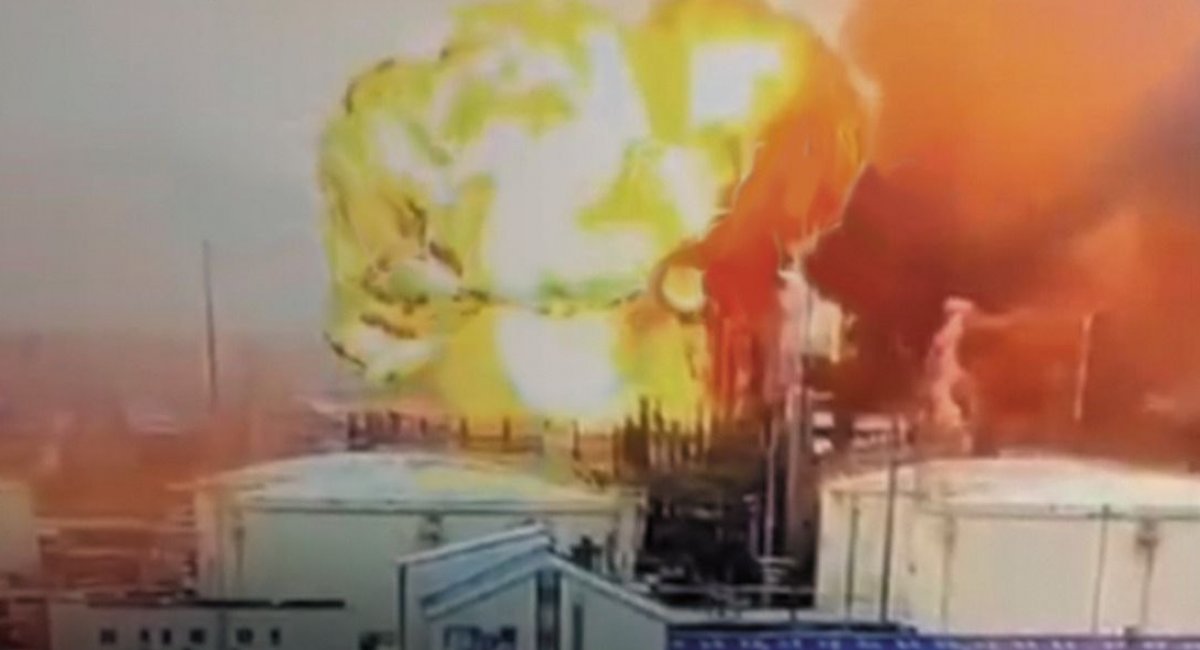In the early hours of August 24, 2025, the Special Operations Forces, working in coordination with the Security Service of Ukraine, carried out a precision strike against the Ust-Luga marine terminal in russia's Leningrad region. The attack targeted a key installation used for fractionation and transshipment of gas condensate, a facility with an annual throughput capacity of up to 6.9 million tons.
According to preliminary reports, the strike inflicted significant damage on the infrastructure, causing a large fire and disrupting one of russia's most critical export hubs in the Baltic Sea. The Ust-Luga terminal has long played a central role in russia's energy logistics, serving as a gateway for the export of hydrocarbons while enabling Moscow to circumvent international sanctions through its so-called shadow fleet.
Read more: russia Constructing Huge Antenna 25 km From Poland to Spy on NATO
By hitting this facility, Ukraine aimed not only at diminishing the Kremlin's economic capacity but also at striking a symbolic blow on the very day Ukraine celebrates its Independence Day. The operation illustrates Ukraine's strategy of targeting high-value assets deep inside russian territory to erode both the military and economic foundations of the war effort.
Beyond the Baltic, Ukrainian forces extended the night's campaign by striking a series of logistical nodes in russia's Belgorod and Voronezh regions. These facilities are integral to sustaining russian frontline units, ensuring the flow of fuel, ammunition, and supplies necessary for ongoing operations against Ukraine.
While the exact scale of the damage is still being assessed, the strikes highlight Ukraine's continued ability to reach far beyond the front line.
The Ust-Luga attack is especially significant given russia's reliance on energy exports to fund its war. Disruptions at such a terminal could complicate russia's capacity to maintain stable flows of gas condensate to international buyers, potentially tightening sanctions pressure and raising insurance risks for vessels associated with shadow shipments.
Military analysts suggest that the synchronized strikes demonstrate a deliberate effort to apply pressure on multiple layers of russia's logistics, both economic and military. By degrading oil and gas infrastructure, Ukraine reduces Moscow's export revenues, while hits on supply hubs near the border directly hinder russian battlefield logistics.
For Ukraine, these operations serve a dual purpose: undermining russia's offensive potential while sending a strategic message to both domestic and international audiences.
As Defense Express previously reported, on the evening of August 21, Ukraine's 14th Regiment of the Unmanned Systems Forces carried out a successful strike against the Unecha oil pumping station. The facility, located deep inside Russia, became the second major target in Ukraine's campaign to disrupt the Kremlin's energy and military logistics this week.

Read more: Second Target in a Week: Ukraine's 14th Regiment Hits russian Unecha Oil Pumping Station Connected to the Druzhba Pipeline














